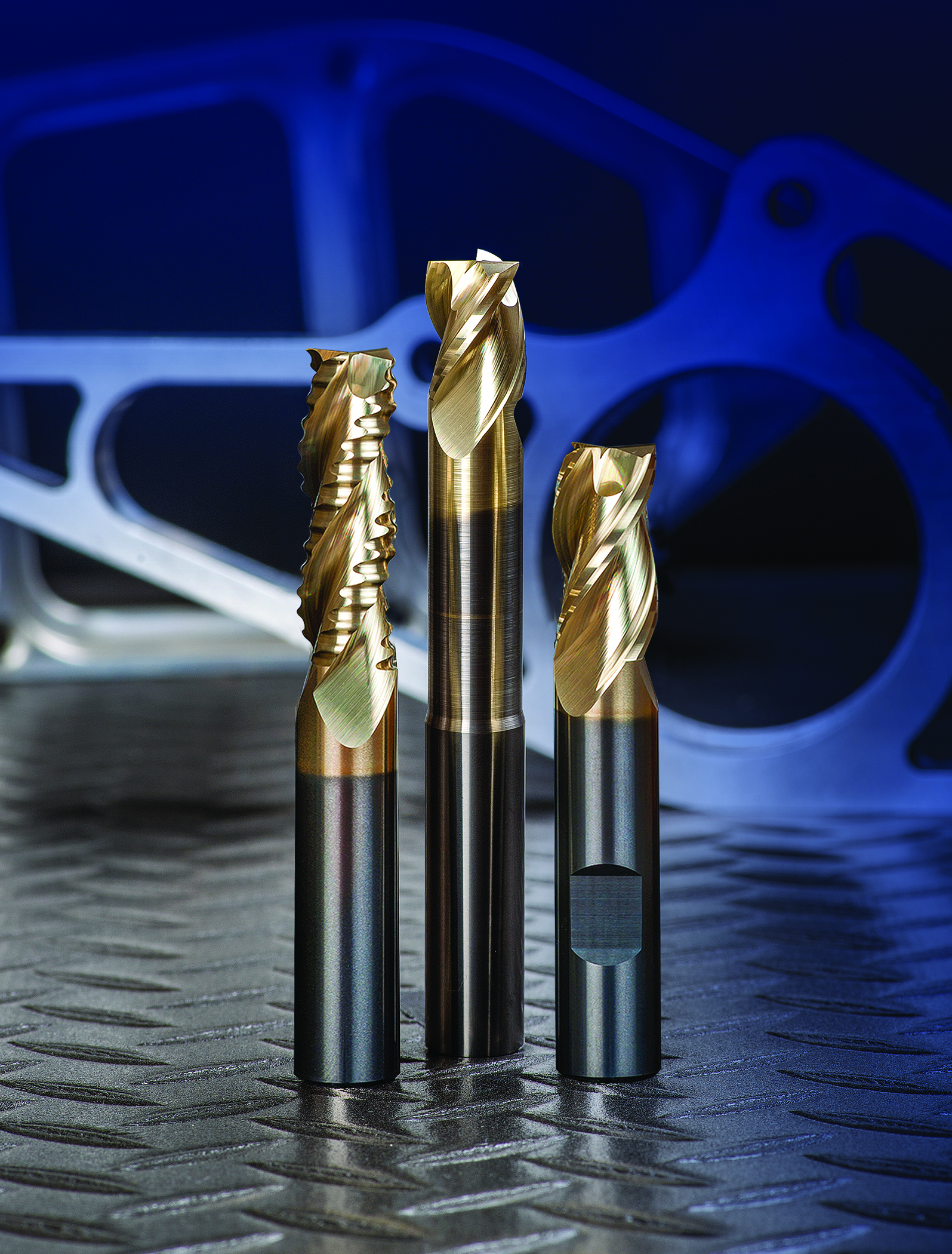STREAKERS M223 and M233 Endmills
STREAKERS M223 and M233 Endmills
Machining productivity in aluminum alloys takes a major step forward with new STREAKERS M223 and M233 high-performance cutting tools, introduced by IMCO Carbide Tool.

Machining productivity in aluminum alloys takes a major step forward with new STREAKERS M223 and M233 high-performance cutting tools, introduced by IMCO Carbide Tool.
"We designed these new STREAKERS specifically to make working in aluminum alloys more productive – faster cycle times, lower cost per part, higher metal removal rates even with heavy tool engagement, while getting better floor and wall finishes," said Perry Osburn, president and CEO of IMCO Carbide Tool. "We reached those goals and then some."
Developed for aggressive chip evacuation under extremely heavy chip loads, new M223 and M233 endmills combine unique flute designs, higher corner strength, high-performance ZrN coating and other features of IMCO's advanced technologies. They're ideal for high-performance milling in all types of aluminum, including high-silicon, die cast and extruded aluminum parts. Testing in IMCO's in-house lab showed they perform well at speeds as low as 3,000 rpm and reach their peak performance at speeds above 10,000 rpm.
"So whether you're roughing or finishing, you get better finishes without chip packing or maxing out horsepower," Osburn said.





